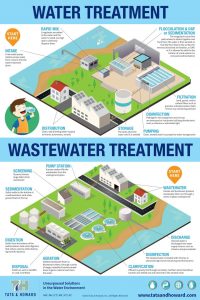Water For People presents the Kenneth J. Miller Award
MARLBOROUGH, MA – Donald J. Tata was posthumously awarded the Kenneth J. Miller Founders Award presented by Water For People (WFP), a non-profit organization promoting the development of high-quality drinking water and sanitation services throughout the world. The ceremony took place on June 12, 2018 at the American Water Works Association (AWWA) Annual Conference and Expo (ACE18) held at the Mandalay Bay Resort in Las Vegas, Nevada.
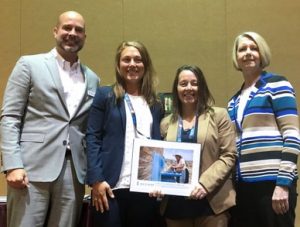
Karen M. Gracey, P.E., and Jenna W. Rzasa, P.E., Co-Presidents with Tata & Howard, accepted the award on Donald Tata’s behalf. “Don dedicated his career to improving the environment and he was particularly moved by Water For People’s efforts in bringing clean water to those in need,” Karen said. “He would be humbled by this nomination especially by an organization that meant so much to him.”
This year, Water For People expanded the Miller Award to include Workplace Giving Champions for which Don was recognized as a leader in the support of raising awareness to those in need of access to clean water.
Don Tata, who sadly passed away in 2017, was passionate about the environment and compassionate about the plight of those living in poverty without access to clean drinking water. He immediately supported the cause of Water For People when he was introduced to the organization through AWWA. Through Don’s fundraising efforts, Water For People has received over $66,000 since 2005.
 Don not only supported the Water For People organization individually, he also shared his passionate support with the employees of the firm he co-founded, Tata & Howard, Inc. Employees continue to support WFP through a payroll deduction program, which Don initiated. At the end of each year, the company matches the employee’s donations.
Don not only supported the Water For People organization individually, he also shared his passionate support with the employees of the firm he co-founded, Tata & Howard, Inc. Employees continue to support WFP through a payroll deduction program, which Don initiated. At the end of each year, the company matches the employee’s donations.
Employees also participate in friendly competitions throughout the year to increase awareness and raise funds in continued support for Water for People. Don was also responsible scheduling time at company meetings to have representatives from Water For People update employees with information on the countries and people directly affected by their contributions.
His family, friends and colleagues were all profoundly impacted by his death in 2017, and even then, during that most difficult time, his family asked people to donate to Water for People in his memory in lieu of flowers. His friends and associates did and donated over $4,500.
Don is greatly missed by all who knew him, and Tata & Howard is committed to continuing his legacy and support of Water for People.
###
About the Kenneth J. Miller Founders’ Award
The Kenneth J. Miller Founders’ Award was established in 2001 by the Board of Directors of Water For People to honor outstanding volunteer service to this international humanitarian effort. Water For People was conceived in response to the water, sanitation and health needs of millions of families living in the developing world.
The award was named to honor Ken Miller, who was one of Water For People’s founders, and supporter throughout his career. Each year, Water For People’s volunteer committees nominate one person for the award for the year. The winner is recognized and presented with a plaque at the American Water Works Association (AWWA) Annual Conference and Expo (ACE) during the Miller Award luncheon.
For more information: Kenneth Miller Award
About Water For People
From its beginnings, Water For People was envisioned to be a volunteer effort of the North American water and wastewater communities. The American Water Works Association (AWWA) leaders who organized Water For People believed that water professionals throughout North America would recognize the urgent need to support such a cause by contributing their financial assistance, organizational skills, and professional expertise. Local groups of water and sanitation professionals launched hundreds of active programs in support of Water For People. As the organization grew and began to accomplish its vision of service, it became evident that extraordinary volunteer efforts were being made at the local level and that this dedicated work needed to be publicly acknowledged and honored.
The search for a model individual to exemplify the value of volunteer service and to underscore the importance of this award led immediately to Kenneth J. Miller, one of the founders of Water For People and its first president.
For more information: Water For People
About the American Water Works Association
The American Water Works Association (AWWA) is an international nonprofit scientific and educational society dedicated to the improvement of drinking water quality and supply. Founded in 1881, AWWA is the largest and oldest organization of water supply professionals in the world. Its more than 50,000 individual members represent the full spectrum of the drinking water community: treatment plant operators and managers, scientists, environmentalists, manufacturers, academicians, regulators and others who hold a genuine interest in water supply and public health. Membership includes more than 4,000 utilities that supply water to roughly 180 million people in North America.
For more information: AWWA

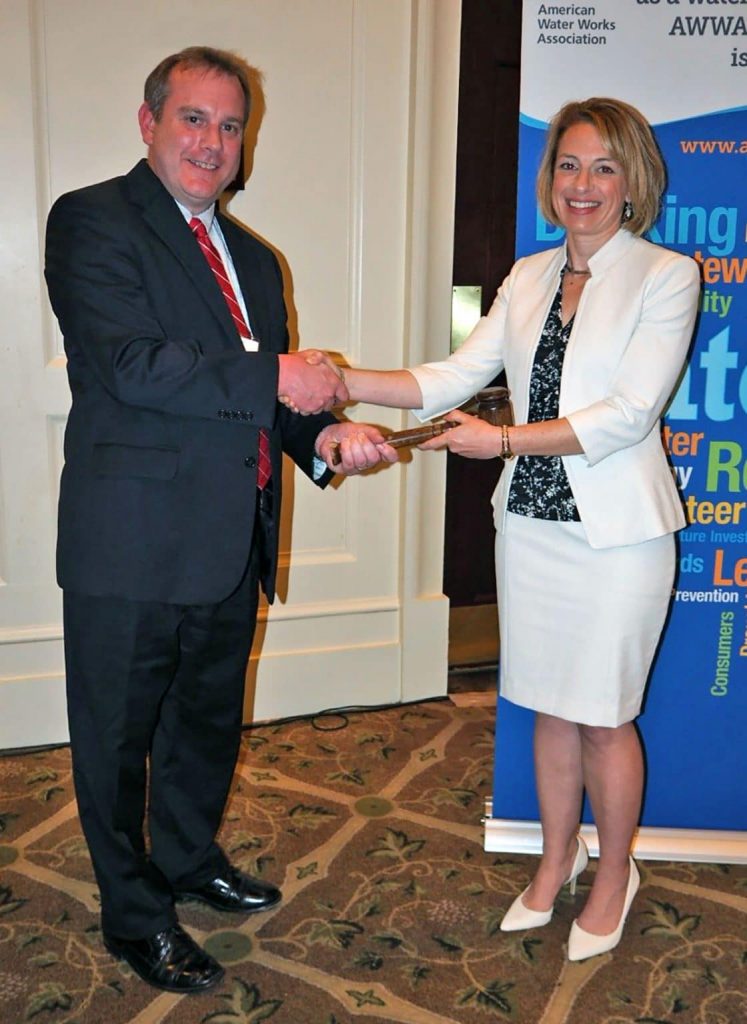
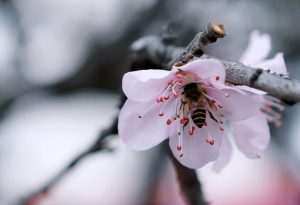
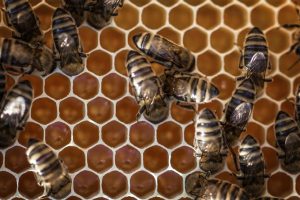
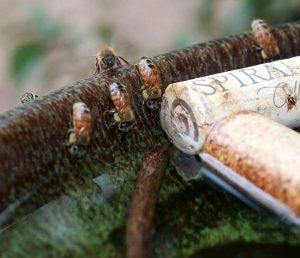
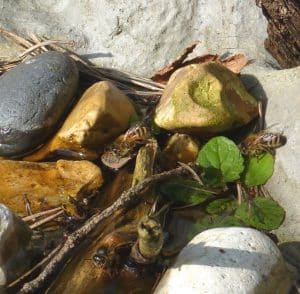
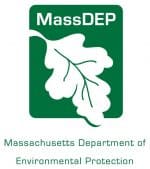
 MA (ACEC/MA) for the Long Pond Water Filtration Facility in Falmouth, MA. The award was presented at ACEC/MA ceremony and gala held on March 14, 2018 at the Royal Sonesta in Cambridge, Massachusetts.
MA (ACEC/MA) for the Long Pond Water Filtration Facility in Falmouth, MA. The award was presented at ACEC/MA ceremony and gala held on March 14, 2018 at the Royal Sonesta in Cambridge, Massachusetts.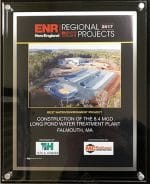 Engineering-News Record (ENR) New England announced in December 2017, their Regional Best Projects Winners. Methuen Construction, the contractor for the construction of this facility, was awarded two Best Projects awards: Water / Environment – Best Project and Excellence in Safety – Best Project (highest honors). Projects were evaluated on the ability of the project team to overcome challenges, contribution to the industry and community, safety and construction, and design quality.
Engineering-News Record (ENR) New England announced in December 2017, their Regional Best Projects Winners. Methuen Construction, the contractor for the construction of this facility, was awarded two Best Projects awards: Water / Environment – Best Project and Excellence in Safety – Best Project (highest honors). Projects were evaluated on the ability of the project team to overcome challenges, contribution to the industry and community, safety and construction, and design quality.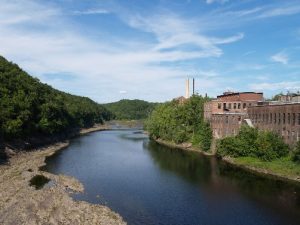 MARLBOROUGH, MA, January 15, 2018 –
MARLBOROUGH, MA, January 15, 2018 –  While many New Year’s resolutions include renewing that old gym membership or cleaning out the garage, a great way to start the new year off right is to focus on conserving water. With
While many New Year’s resolutions include renewing that old gym membership or cleaning out the garage, a great way to start the new year off right is to focus on conserving water. With 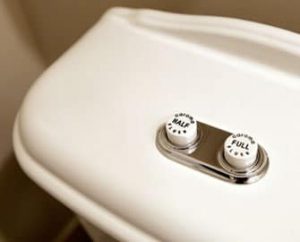
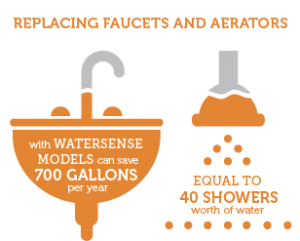
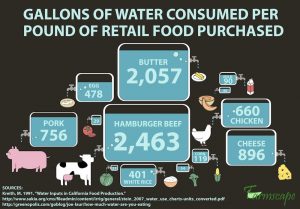


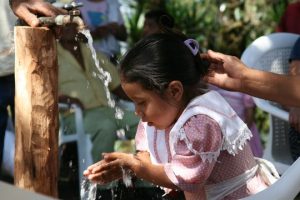
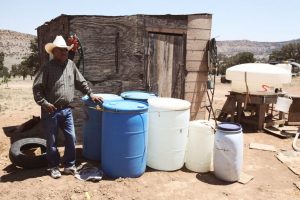
 It is widely known how important water is to our lives and the world we live in. Our body and planet is comprised of about 70% water – making it seem like it is easily accessible and plentiful. However, when you rule out our oceans and ice caps, less than 1% of all the water on Earth is drinkable. Of that less than 1%, groundwater only accounts for 0.28% of fresh water around the globe. Safe drinking water is a privilege we often take for granted while we brush our teeth or drink a glass of water in the morning. While we are giving thanks to our family, friends, and food during Thanksgiving, we should also give big thanks for our clean drinking water and the people who make it happen.
It is widely known how important water is to our lives and the world we live in. Our body and planet is comprised of about 70% water – making it seem like it is easily accessible and plentiful. However, when you rule out our oceans and ice caps, less than 1% of all the water on Earth is drinkable. Of that less than 1%, groundwater only accounts for 0.28% of fresh water around the globe. Safe drinking water is a privilege we often take for granted while we brush our teeth or drink a glass of water in the morning. While we are giving thanks to our family, friends, and food during Thanksgiving, we should also give big thanks for our clean drinking water and the people who make it happen.
